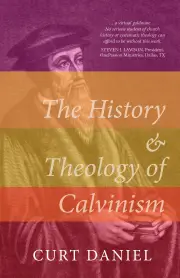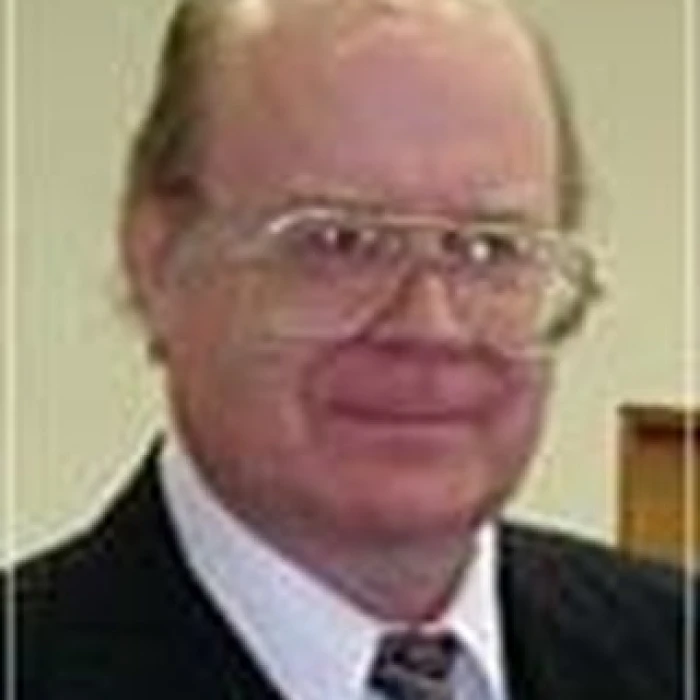With forewords by both Joel Beeke and John MacArthur, you would be right to expect something special from this book. Curt Daniel's The History and Theology of Calvinism is the result of decades of study and teaching. It provides a comprehensive overview of Calvinism in two sections: the “History” surveys the Reformed theologians and preachers, the development of the theology and the major controversies. The “Theology” section discusses doctrines related to the sovereignty of God, the five points of Calvinism and the distinctive contributions of Calvinism in other areas.
What others are saying about The History and Theology of Calvinism:
"Several years ago, a friend gave me a bound copy of Dr. Daniel’s notes on the history of Calvinism and the doctrines of grace. I’ve kept it nearby ever since. It’s one of the most useful and informative resources in my entire library—well written, crystal clear, and thorough without being ponderous. I’m delighted to see this expanded edition in print."
— John MacArthur, Senior Pastor, Grace Community Church, Sun Valley, California, President of the Master's Seminary and the Master's University
"This invaluable volume is a virtual goldmine containing the rich history and theology of the Reformed truths known as Calvinism. The beauty of this book is its comprehensive breadth and accessible readability that surveys the vast landscape of this immense subject matter. Ever since these pages first appeared years ago, it has been a trusted guide to me to navigate my journey through the many pivotal individuals, strategic movements, and doctrinal issues of biblical Calvinism. No serious student of church history or systematic theology can afford to be without this work in your personal library."
— Steven J. Lawson, President, OnePassion Ministries, Dallas, TX
"Curt is a proven scholar and a personal devotee of the doctrines to which he gives such careful attention in this book. It does not merely go over the well-known history already present in many volumes (though it does not ignore that) but gives both substance and perspective that is needed today in a time when there is growing renewed interest in these doctrines. I personally hope that you will pursue the opportunity to publish this substantial volume which interacts so thoroughly with Calvinism in its various nuances and denominational expressions."
— Tom Nettles, Professor of Church History, The Southern Baptist Theological Seminary, Louisville, Kentucky
"There is no doubt that Calvinism (even though John Calvin would abhor the term) has played a critical role in the history of the Christian faith. Amazingly, though, there have been very few studies that have sought to provide a comprehensive overview of both its history and theology. Dr Daniel’s survey of the narrative and thought of this influential worldview does just that and does it magisterially. This textbook (for that is what it truly is) is thus very welcome and will be enormously helpful for all who are interested in this tremendous Christian movement."
— Michael A. G. Haykin, Chair & Professor of Church History, The Southern Baptist Theological Seminary, Louisville, Kentucky
"It would be pretty hard to overstate how helpful Curt Daniel’s notes on Calvinism have been in my study of historical theology and the Protestant Reformation. He has an uncanny knack for untangling hard theological knots and deftly sweeping away confusion and misunderstanding. I have gained more insight from this volume than from any other book on systematic theology or church history, and yet this is a resource I can (and regularly do) recommend to lay people—even those who are just beginning to study theology seriously. It’s rare and refreshing to find a treatise on theology that is so comprehensive and yet so easy to read. This is that book. Get a copy. I promise you will thank me for the recommendation."
— Phil Johnson, Executive Director, Grace to You
"The History and Theology of Calvinism is a fascinating, tortuous, compelling drama. Curt Daniel, through a lifetime of study, deftly and insightfully sketches the course and essential content of that drama. Daniel understands the variegated nature of Calvinism and ably guides us through the highs
and lows of the drama, never failing to engage us with the often-maligned characters and often misunderstood theology that constitute historic Calvinism. This is a book that is vast in its sweep and deep in its analysis. I highly recommend it."
— Ian Hamilton, Professor of Systematic Theology, Edinburgh Theological Seminary, Edinburgh, Scotland; and editor, Banner of Truth magazine
"Curt Daniel has done extensive research into the history and theology of Calvinism and has written one of the most helpful and readable treatments of Calvinism in print. The comments are fair and irenic, and the book attempts to cover the entire sweep of Calvinism (including much information on Puritanism and other Reformed groups, past and present). It is worth its weight in gold!"
— Lance Quinn, Senior Pastor, Bethany Bible Church, Thousand Oaks, California
-
Title
The History and Theology of Calvinism
-
Author(s)
-
ISBN
9781783972821
-
Format
Hardback
-
Publisher
-
Audience
Church Leaders
-
Pages
912
-
Published
15/09/2020






